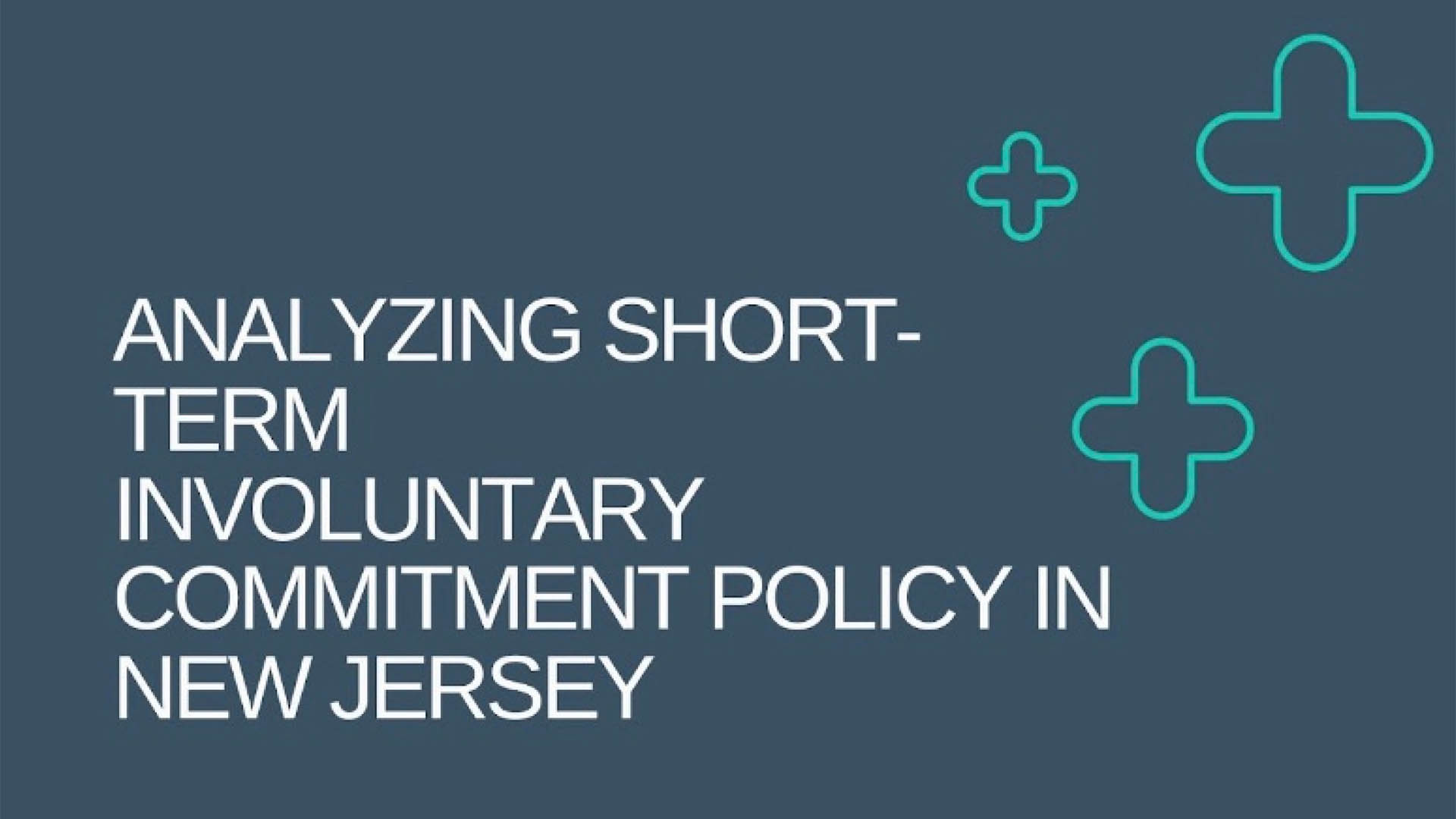Larissa Garcia, Maia Hill, Stephen Keffer, Awn Rizvi, Raisa Rubin-Stankiewicz, Vee Yeo
At the request of New Jersey Policy Perspective (NJPP), Rutgers graduate student researchers from the School produced a report to analyze P.L. 2023, c.139 which doubles the length of permissible involuntary commitment holds in hospitals from 72 hours to 144 hours. This report conducted a mixed-methods analysis to assess the policy, practices, and procedures behind involuntary commitment within the state of New Jersey to provide research-informed and patient-centered policy recommendations that address the potential barriers to mental health care and provide alternative policy solutions to lawmakers as the current involuntary commitment extension under P.L. 2023, c.139 is set to sunset in 2025.
Based on a review of background literature on the history of involuntary commitment across the United States, quantitative analysis of existing data, semi-structured interviews with stakeholders, and an anonymous online survey of individuals with lived experiences on the topic, the researchers were able to identify some key findings. Convenience sampling of study participants and limited participation impact the generalizability of this study’s findings, particularly the online survey. Limitations in the availability of data on the utilization of involuntary commitment following the implementation of the act also limited the conclusions that can be drawn from this analysis.

